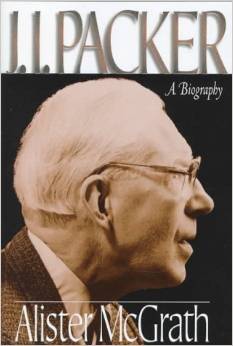 John's visions were made possible by the Holy Spirit.
John's visions were made possible by the Holy Spirit.By Neil Earle
Good morning.
It’s only fitting that we should end our series on the Trinitarian presence of the Holy Spirit across both Testaments with a quick survey of the last book of the Bible.
 John's visions were made possible by the Holy Spirit.
John's visions were made possible by the Holy Spirit.The Book of Revelation scares, bewilders and challenges many people mainly through misguided interpretations and misapprehensions. This is unfortunate because there are many wonderful passages in the Apocalypse that go unread. Right at the beginning we are given a blessing (‘Blessed is he who reads”) and at the end we are given an invitation to eternal life (“Whoever is thirsty, let him come).”
The Holy Spirit is quite prominent from Revelation 1:4 to 22:17. In some ways this capstone book of the Bible puts a vivid and flaming touch to the Trinity teaching. If the Bible is a movie, Revelation is an IMAX production. The Apocalypse takes ideas that are well-known across the Scriptures (e.g. Good vs. Evil) and blows them up into an unforgettable phantasmagoria of colorful descriptions such as the vision of the elegant pregnant lady standing before a monstrous dragon in Revelation 12:1-5.
As commentator Eugene Peterson says, This is the Christmas story but you’ve never seen a Christmas card like this one!
Here is a cue as to how we are to read this highly symbolic book. The symbols are there in Technicolor style and even more lavish than Daniel and Ezekiel, the Old Testament books Revelation most clearly resembles.
So the symbols mean something and need careful decoding. We must not throw away the letter by focusing on the envelope.
 J.I. Packer's books are solidly trinitarian in tone.
J.I. Packer's books are solidly trinitarian in tone.Note that in Revelation 1:4-5, after the Prologue, John begins with a three-fold description of the Godhead. To those who have been holding out against the Trinity teaching all across Scripture here is another highly charged verse that deserves a second look.
“Grace and peace to you from him who is, and who is, and who is to come, and from the seven spirits before his throne, and from Jesus Christ, who is the faithful witness, the firstborn from the dead, and the ruler of the kings of the earth” (1:4-5).
God the Father is described three ways here and scholars know John is breaking the rules of Greek grammar to describe the One known as the Great I Am that I Am in Exodus 3. He says in the Greek, “The He who is,” ”the He who was,” and the “He who will be.”
The Son is likewise described in a three-fold pattern. But who then is meant by the “seven Spirits?” Opinions vary but many follow James I Packer who asks “Would John have put the Spirit between the Father and the Son if he had not regarded the Spirit as divine in the same sense as they are?” (See Concise Theology, pages 40-42). The ace popular theologian Packer knew well what we have been covering these past weeks, that Scripture speaks of “three personal agents, Father, Son and Holy Spirit working together in the manner of a team to bring about salvation” (Romans 8; Ephesians 1:13-14; 2 Thessalonians 2:13-14; 1 Peter 1:20).
And there it is in our first text from Revelation!
Next we turn to John’s well-known seven letters to the seven churches in chapter 2 and 3. It is humbling to realize for us in GCI, who were anti-Trinitarian for so long, that each letter ends with “hear what the Spirit says to the churches.”
Seven times it says that. Seven times! This fits with Jesus’ own teaching that the Spirit leads the church and is intimately involved in its working out. This is also consistent with books such as Acts wherein the Spirit descends with power, hypes up Peter’s preaching, falls on the new converts in Samaria, manifests himself at Cornelius’ baptism, separates Paul and Barnabas for their special work, and forbids Paul to go into Asia but beckons him into Macedonia to bring the Gospel to Europe.
The Spirit speaks again in Revelation, in 14:13, which is one of our great funeral texts: “Yes, says the Spirit, they will rest from their labor, for their deeds will follow them.”
Question: If the Spirit is to lead and teach the Church could the Spirit be more intelligent than the Church? Obviously He would have to be. That is why Romans 8 mentions “the mind of the Spirit.”
The theologian Thomas Oden makes a good point here: “There is not one single sin against the Spirit but many. The Spirit may be ignored or refused (Galatians 3:2-3). The Spirit may be resisted (Acts 7:51). The convincing work of the Spirit nay be choked, quenched and virtually extinguished by our resistance (1 Thessalonians 5:19). A work may be begun in the Spirit that is later threatened with apostasy or defection (1 Timothy 1:19)…Paul implores his hearers not to grieve the Spirit” (Life in the Spirit, pages 21-22).
These are all attributes of a Person.
The phrase ”in the Spirit” refers of course to the Spirit’s dynamic work all through Revelation. John is taken up into heaven while "in the Spirit,” that is, in the visionary state (Revelation 4:1-5). We see that again in Revelation 17:3, because the same spirit that spoke by the prophets is now guiding and teaching John (Revelation 19:10; 22:6). And how! John’s powerfully written symbols and sometimes enigmatic visions remain to challenge us still.
But…the warm inviting presence of the Holy Spirit which Christians experience as a strengthening presence in their daily lives, that Spirit makes the Grand Invitation at the end of the whole Bible – “If you’re thirsty come here and sample what God has to offer.”
Every Christian church or body has that warm-hearted spirit of evangelism inside of them. As Oden adds:
“Through directly teaching, meeting, and indwelling within the human spirit, God the Holy Spirit gives new life to the sinner, sustains the soul through the hazards of moral bankruptcy, and works to draw without coercion (humanity) back to its original purpose of refracting the goodness of God…He poured out the Spirit of the Father to unite us and reconcile God and man, bringing God down to man through the Spirit, and raising man to God through (the Son’s) incarnation, attaining his purpose not through force but by way of persuasion.”
The Holy Spirit will not dictate, force or compel. His activity in human beings is gentle and persuasive. Indeed, he is the still small voice of conscience inside us we have all felt, impelling us to be patient, more loving, more loyal in our relationships.
As Oden concludes: “There is nothing too subtle or dense for the Spirit to penetrate or too sinful for the Spirit to cleanse or too weary for the Spirit to refresh or too dark for the Spirit to understand or too dead for the Spirit to breathe life into again. The Spirit strives with us, prays for us, groans with us.”
He comes to us from God himself as a supreme gift, able to teach and lead us in our daily lives because he has access to the inner working of God’s counsels both for us and for the world (John 16:7-15). That is because the Spirit is God. The Book of Revelation testifies to that great fact.